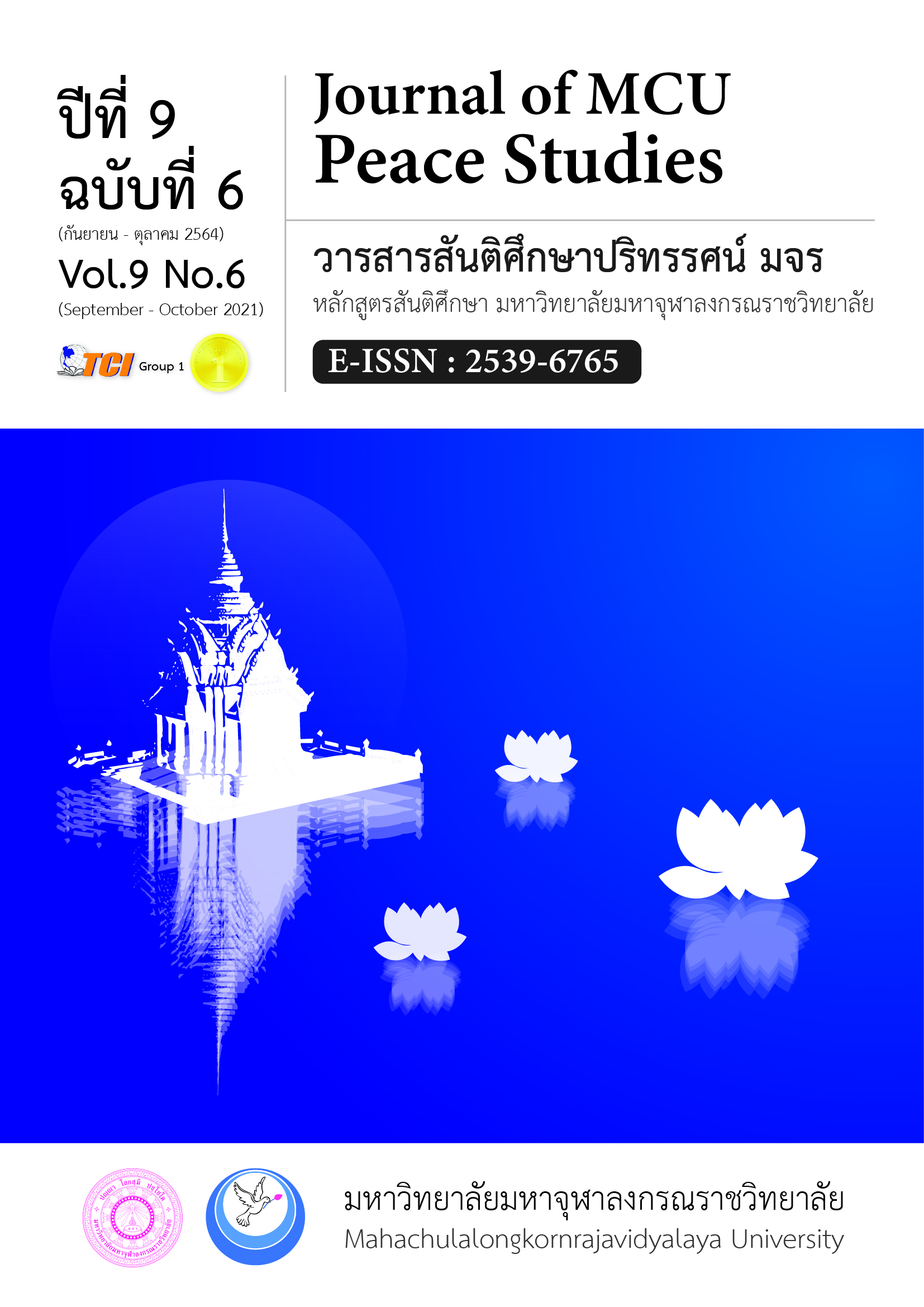การพัฒนาหลักสูตรกิจกรรมพัฒนาผู้เรียนระดับปฐมวัย
Main Article Content
บทคัดย่อ
บทความวิจัยนี้ มีวัตถุประสงค์ 1) เพื่อสร้างรูปแบบการพัฒนาหลักสูตรกิจกรรมพัฒนาผู้เรียนระดับปฐมวัย 2) เพื่อประเมินหลักสูตรกิจกรรมพัฒนาผู้เรียนระดับปฐมวัย 3) เพื่อยืนยันรูปแบบหลักสูตรกิจกรรมพัฒนาผู้เรียนระดับปฐมวัยเป็นพหุองค์ประกอบมีความสัมพันธ์ต่อเนื่องกัน มีความเหมาะสม เป็นไปได้ เป็นประโยชน์ และถูกต้องตามทฤษฎี งานวิจัยนี้เป็นการวิจัยเพื่อพัฒนา สถานที่เป็นสถานศึกษาขั้นพื้นฐานในเขตภาคเหนือตอนล่าง กลุ่มตัวอย่างได้จากการเลือกแบบเจาะจงเป็นสถานศึกษาในจังหวัดพิษณุโลก 2 แห่ง คือ โรงเรียนบ้านหนองกระบาก และโรงเรียนวัดกรับพวง จังหวัดเพชรบูรณ์ 2 แห่งคือ โรงเรียนตาดหมอกวิทยา และโรงเรียนบ้านดง ผลการวิจัยพบว่า 1) รูปแบบการพัฒนาหลักสูตรกิจกรรมพัฒนาผู้เรียนระดับปฐมวัยที่สร้างขึ้นสามารถนำไปบูรณาการใช้กับสถานศึกษาอื่นที่เปิดสอนในระดับปฐมวัยได้ผลการดำเนินงานก่อนการพัฒนาพบว่า โดยรวมอยู่ในระดับมากมีค่าเฉลี่ย ((x ) ̅= 3.77) ส่วนเบี่ยงเบนมาตรฐาน (S.D. = 0.62) หลังการพัฒนาพบว่าอยู่ในระดับมาก เช่นเดียวกันโดยมีค่าเฉลี่ย (x ̅ = 4.42) ส่วนเบี่ยงเบนมาตรฐาน (S.D. = 0.59) เพิ่มขึ้น +0.65 มีองค์ประกอบการบริหารจัดการหลักสูตร 8 ด้านด้านการนำหลักสูตรไปใช้ 4 ด้าน 2) การประเมินหลักสูตรกิจกรรมพัฒนาผู้เรียนระดับปฐมวัยพบว่าผลการประเมินโดยรวมอยู่ในระดับมาก มีค่าเฉลี่ย (x ̅ = 4.33) ส่วนเบี่ยงเบนมาตรฐาน (S.D.= 0.53) 3) การยืนยันรูปแบบหลักสูตรกิจกรรมพัฒนาผู้เรียนระดับปฐมวัยโดยอ้างอิงผู้ทรงคุณวุฒิ พบว่าหลักสูตรที่สร้างขึ้นเป็นพหุองค์ประกอบที่มีความสัมพันธ์ต่อเนื่องกัน มีความเหมาะสม มีความเป็นไปได้ เป็นประโยชน์และมีความถูกต้องครอบคลุมตามทฤษฎีในเชิงปริมาณคิดเป็นร้อยละ 100
Article Details
ทัศนะและความคิดเห็นที่ปรากฏในบทความในวารสาร ถือเป็นความรับผิดชอบของผู้เขียนบทความนั้น และไม่ถือเป็นทัศนะและความรับผิดชอบของกองบรรณาธิการ ยินยอมว่าบทความเป็นลิขสิทธิ์ของวารสาร
เอกสารอ้างอิง
Boonrang, T. (2010). Curriculum development. (2nd edition). Bangkok: Chulalongkorn University. Hagerty, R. E. (1971). An Investigation of Student Activity Programs in Michigan Junior High School. Wayne State University. Michigan: ProQuest Dissertations Publishing.
Jaturaphat, S., & PridiDilok, F. (2014). Guidelines for Thai Scouting Development to Promote Good Citizenship, Education Journal. 42 (2), 57-71.
LekLertsiriwong, T. (2011). Management of Scouting Activities. This is part of the study of the Master of Education program. Educational Administration Branch Graduate school: Silpakorn University.
Lu. (1993). General Foci and Content Elements for a New Scouting Education Curriculum of the Republic of China on Taiwan: A Delphi Study.Taiwan: University of Illinois.
Moreilon, J. (2005. Scouts Serving the Cause of Literac: Literacy lessons. Dissertation Abstract International Bureau of Adult of Education: Geneva Switzerland.
National Boy Scouts. (2012). 100 years of Thai Scouting. Printing House, Office of the Welfare Promotion and Welfare of Teachers and Educational Personnel. Ladprao. 1-7.
National Scout Office Ministry of Education. (2017). The 2017 Thai Scout Council Meeting in Bangkok. Bangkok.
Office of Academic and Educational Standards Ministry of Education. (2017) Early Childhood Education Curriculum. Bangkok, Agricultural Cooperative Association of Thailand Printing Co., Ltd.
Office of the Council of State. (2008). Scout Act B.E. 2551. Government Gazette Volume 125/Part 42 Kor/page 92/4 March.
Saylor, J. G. & Alexander, W. M. (1974). Curriculum Planning for schools. New York: Holt, Rinehart & Winston.
Stufflebeam, D L., et al. (1971). Educational Evaluation and Decision making. IIIinois: Peacock Publisher Inc.
Summary of the royal order of His Majesty King Bhumibol Adulyadej on Education. (2017) February 2, at the OBEC Conference Room 1, Building 4, Office of the Basic Education Commission. 3-5.
Sutthisarn, A., Surakitbowon, S., & Prasantree, T. (2011). The States and Problems of the Activity Management for Senior Scouts in Schools under the Offices of Nakhon Phanom Educational Service Area. Journal of Nakhon Phanom University, 1(2), 89-95.
Taba, H. (1962). Curriculum Development: Theory and Practice. New York: Harcourt Brace Jovanovich The Royal Strategy of Education In King Maha Vajiralongkorn Badintharathepyawarangkun. Retrieved December 14, 2020, from https://www.google.com


